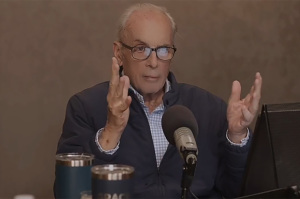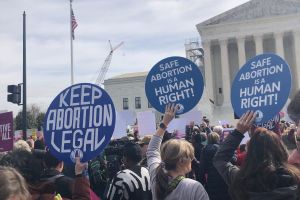Atheist parolee can't be forced to participate in Christian program, appeals court rules

An atheist parolee cannot be jailed for refusing to attend worship services or participate in a Christian transitional program, a three-judge U.S. circuit court panel has ruled.
The U.S. Court of Appeals for the 10th Circuit issued a decision last Friday reversing a lower court ruling against atheist Mark Janny, who was released from jail on parole in 2015 and forced by his parole officer to participate in a Christian ministry or be jailed.
The conditions of Janny's parole included placing him in a religious residence at the Rescue Mission in Fort Collins and obeying "house rules." Janny was also enrolled in a transitional program called "Steps to Success," which required prayer, Bible study and church attendance.
Janny proposed a friend's home as an alternative place of residence. But that proposal was rejected by the parole officer, John Gamez, because the officer believed that Janny's friend was involved in using illegal drugs.
Eventually, Janny was expelled from the mission because he skipped worship services, which led to Janny's arrest and his parole being revoked. A parole board found Janny violated his parole because he failed to "remain overnight at his residence of record." He was remanded to a community-return-to-custody facility for 150 days.
The 10th Circuit panel reversed a district court order in favor of Gamez and Mission director Jim Carmack. It remanded the case back to the lower court to consider Janny's First Amendment claims.
“Because Officer Gamez rejected Mr. Janny’s proposed residence, while directing him to stay at the Mission, Mr. Janny was given a ‘Hobson’s choice’ — to violate his religious beliefs by following the Program’s rules or to return to jail,” wrote Judge Carolyn McHugh, an Obama appointee, for the majority.
“It was the state’s responsibility, not Mr. Janny’s, to locate an alternative residence that did not involve that coercive choice.”
McHugh stressed that other courts in the United States “have repeatedly rejected the suggestion that being compelled to attend religious programming is insufficient to make out an Establishment Clause violation.”
“A contrary holding would risk draining the First Amendment of its power to bar blatant governmental intrusions into the sphere of personal religious liberty,” McHugh continued.
“The record allows Mr. Janny to reach the jury on his claim that Officer Gamez burdened his right to free exercise by allegedly presenting him with the coercive choice of obeying the Program’s religious rules or returning to jail.”
Circuit Judge Joel Carson III, a Donald Trump appointee, authored an opinion that concurred in part and dissented in part. He argued that Mission director Carmack should be immune from the litigation.
“Mr. Carmack, as the director of a religious nonprofit, required Mr. Janny to comply with the nonprofit’s programing, including its religious rules, so long as Mr. Janny remained under the nonprofit’s roof. When Mr. Janny failed to do so, Mr. Carmack asked him to leave as he would any other person,” wrote Carson.
“As I see it, the majority makes it so religious nonprofits now have two options (1) they can stop requiring religious programing — perhaps defeating their core missions; or (2) they can stop accepting parolees — leaving more individuals who struggle to find a safe place to live, in jail.”
Americans United for Separation of Church and State, a progressive legal organization that helped represent Janny, celebrated the circuit panel's decision.
“This is a victory for Mark and for religious freedom,” stated Alex J. Luchenitser, Americans United associate vice president and associate legal director.
“… our government must never force anyone to practice a faith that is not their own, and of course must never jail anyone for refusing to submit to religious proselytization."





























